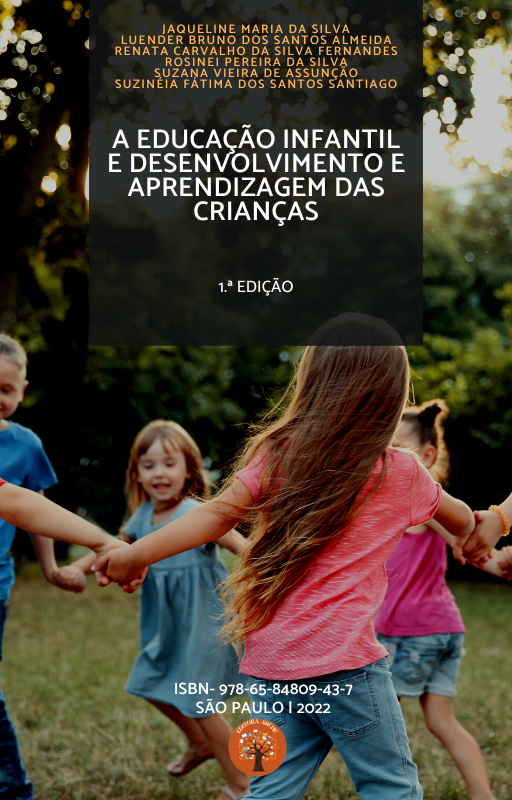CHILD EDUCATION AND CHILDREN'S DEVELOPMENT AND LEARNING
Keywords:
Children's learning. Development. Child education.Abstract
The purpose of this book is to show the importance of early childhood education for children's development and learning. The research began with concerns, living together and participating in the development of children up to five years old.
The same was developed through bibliographical readings to better understand the social phenomena of early childhood education. He made a historical look at the concept of childhood in past societies, showing the child as a miniature adult.
In today's societies, however, one can see a childhood that is overloaded with tasks, which often forgets its special characteristics in childhood. It also briefly presents the history of education in Brazil and its constitution as basic education, discusses the pedagogical role of pedagogical practice and the training of teachers for these first years of life, based on pedagogical practice and teacher training, emphasizing e. a natural relationship that cares, educates and plays.
It emphasizes that all child care must be playful and dynamic, so that the child achieves development, integration and socialization in their teaching and learning. Speaking of childhood, one cannot fail to underline the importance of early childhood education in the last years of a child's life as an important influence on teaching and learning.
In today's society we are asked what childhood is and how we see it today, what qualities do we attribute to it, we discuss the reinvention of childhood to better understand where the adult is responsible for survival and activity, today's society must see it in its own right . characteristics, but it is characterized by the intolerance of adults in relation to tasks, a healthy childhood, with meanings and learning must be protected. Seeing children and childhood differently, today's society wants to ask for their participation and integration in the environment, the role of the family and the school is to let them manage their knowledge and be valued. What we see now is the childhood of modern life in a society of globalization and total change, it is a unique being, complete and at the same time in growth and development, where its characteristics are in a complete change that occurs both in the physical. side and the child's cognitive side.
Early childhood education has become an integral part of basic education, which offers learning opportunities with high-quality professionals and educated environments. This institution has a pedagogical character, projects and a critical and reflective practice with the child. It is the quality of early childhood education and its pedagogical principles, which are the main factors of teaching and learning, defined in the Organization of the National Curriculum Framework for Early Childhood Education (1998), which aims to care for and encourage child participation. and learning.
It is believed that with the realization of this work, knowledge will expand, making it possible to carry out the educational practice with a more sustainable, very professional and scientific vision, looking at pedagogy as a science of education and science of education. in its specificity. With regard to the scientific dimension, this study proposes to deepen the subject, as it is a pluralistic perspective in which the child participates, between formal recognition and scientific progress.
Today's society wants to contribute to a better understanding, evaluation and social participation and early childhood education through public policies for children and pedagogical proposals that can promote the development of quality work that respects children and their uniqueness. Therefore, “childhood education will be guided, then, by an educational character that promotes the integral development of the child in its different and complementary perspectives” (ANGOTTI, 2006, p. 18).
Thus, this phase of basic education is finally understood and developed in such a way that the child is seen and raised as a subject of values and respect with their uniqueness, independence and cognitive, physical and social abilities.
The authors!
Downloads

Downloads
Published
How to Cite
License
Atribuição CC BY
